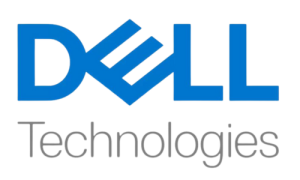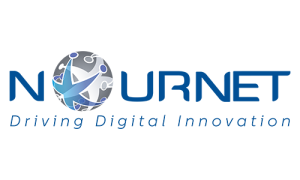
IDC Security Roadshow

Overview
Amid Saudi Arabia’s rapid digital transformation, cybersecurity has emerged as a cornerstone of national progress. The Kingdom’s ambitious Vision 2030 agenda emphasizes the importance of a secure digital infrastructure to support its economic diversification and technological advancements. The Saudi government has launched several initiatives, such as the National Cybersecurity Authority (NCA) and the establishment of cybersecurity centers of excellence, to safeguard critical infrastructure and ensure the protection of sensitive data. These efforts underscore the crucial role of cybersecurity in enabling a resilient and trustworthy digital ecosystem, essential for driving innovation and maintaining public confidence in the digital services that are integral to the nation’s future.
Saudi Arabia’s digital transformation, while offering immense opportunities, also introduces significant cyberthreats that must be addressed. As the nation advances technologically, 59% of Saudi CISOs are preparing to increase their security budgets this year, with a particular focus on user identity management, reflecting its critical importance in safeguarding digital assets. Regulatory imperatives are the primary drivers of these security investments, underscoring the government’s commitment to a secure digital future. Despite these proactive measures, 53% of CISOs express concerns about their organization’s ability to detect and respond to insider threats in a timely manner. This highlights a crucial gap in current cybersecurity strategies, necessitating more robust and comprehensive approaches. To stay ahead of AI-driven threats, it is imperative for Saudi organizations to overhaul their cybersecurity strategies, integrating AI-driven technologies for enhanced threat detection, response, and prevention. By doing so, they can fortify their defenses, protect critical infrastructure, and support the nation’s ambitious digital transformation goals.
The Saudi Arabia edition of the IDC Security Roadshow will bring together a distinguished group of cybersecurity experts, influential analysts, industry thought leaders, international speakers, and leading solution providers. This premier event will delve into the critical role of cybersecurity in securing enterprises across the region. Attendees will gain crucial insights into the latest cybersecurity trends, challenges, and innovations, learning how to adapt to an increasingly complex threat landscape by implementing advanced security measures.
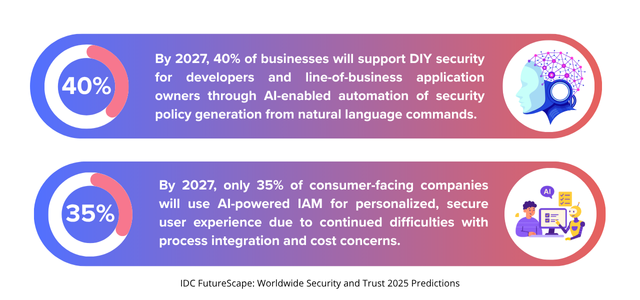

Speakers

Yeşim Öztürk

Ayman Alissa
Ayman Alissa leads the cybersecurity practice at SBM, bringing over 17 years of extensive experience in the field. Throughout his career, he has successfully delivered more than 100 cybersecurity projects, providing clients with robust and innovative security platforms tailored to complex environments. Ayman possesses strong analytical skills and a deep understanding of security architecture and solution implementation. His expertise enables him to design and deploy effective cybersecurity solutions that align with client requirements and industry best practices.
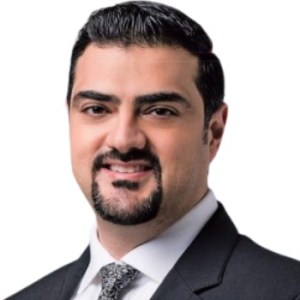
Tarek Kuzbari
Tarek Kuzbari is a seasoned leader with 18+ years of experience in the Technology Media and Telecommunications (TMT) sector, specializing in international market expansion, revenue growth, and P&L management. He has held senior roles at HUMAN, Cybereason, Bitdefender, Group-IB, SABA Software, and Kaspersky, managing $58m ARR across regions including MEA, APAC, and Eastern Europe. Tarek, an acknowledged industry influencer, has been listed among the top “30 under 30” by Gulf businesses and ACN’s “Top 25 Most Powerful Executives in the Middle East”. He also earned a spot in Network Middle East’s “Top Executives in the Security Industry in the Middle East”. He holds an MBA from London Business School and actively supports NGOs like Agastya International Foundation and the Grow Movement.

Abdulrahman Safwat
Abdulrahman Safwat serves as a solutions engineer at Cloudflare. He is an experienced IT professional with over eight years of experience in the cybersecurity industry. He started as a pre-sales consultant at a leading cybersecurity distributor, where he specialized in designing and presenting security solutions, providing technical support, and ensuring successful product deployments. In his current role, Abdulrahman architects and delivers advanced web security and performance solutions, in addition to Cloudflare’s zero trust and SASE products. He holds a wide range of specialized certifications and is dedicated to helping organizations navigate digital challenges.

Tariq Bader
Tariq Bader is a cybersecurity solutions architect at Cisco, with over 15 years of experience supporting organizations across the Middle East and Africa in securing users, applications, and critical infrastructure. He is widely regarded as a trusted advisor to CISOs and senior security leaders across both public and private sectors. Tariq possesses deep expertise in security architecture, network security, zero trust, identity security, security service edge (SSE), and extended detection and response (XDR). In his current role, he enables customers to adopt Cisco’s AI-driven security strategy — anchored in a unified, AI-native platform that leverages end-to-end telemetry to automate policy enforcement and significantly enhance threat detection and response capabilities. Tariq is a regular speaker at Cisco Live and other major cybersecurity events throughout the region.

Tarek Elsabaa
Tarek Elsabaa serves as a senior systems engineer at Dell Technologies. He is an experienced IT professional and data protection specialist with more than 15 years of comprehensive experience in the field. Tarek covers Saudi Arabia and Egypt as a data protection and cyber-recovery solutions presales engineer. He helps Dell customers in their journey to IT transformation through modern and proven data protection strategies, resilient frameworks, and data protection and cyber-recovery solutions.
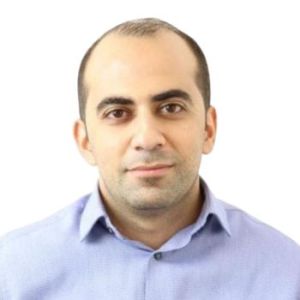
Khaled Abu Samra
Khaled Abi Samra is a solutions engineer at BeyondTrust with over 11 years of experience in the cybersecurity field. He began his career in 2014 as a professional services engineer, helping customers implement a wide range of security solutions such as firewalls, email and web gateways, endpoint protection applications, and data loss prevention systems. In 2022, Khaled transitioned into a pre-sales engineering role, where he supported organizations in selecting cybersecurity solutions tailored to their unique needs. In his current role at BeyondTrust, he focuses on helping customers secure identities and manage privileged access to reduce risk and strengthen their overall security posture.

Mohammad Rawabdeh
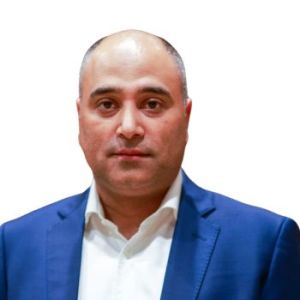
Shabir Bhat
Shabir Bhat serves as the regional director for the Middle East, India, and Africa at Checkmarx. He boasts 15+ years of expertise as a cybersecurity evangelist. Recognized for his dynamic speaking and thought leadership, he engages with enterprises and government bodies, sharing profound insights on application security trends, best practices, and emerging technologies. His commitment extends beyond his role at Checkmarx as he passionately promotes awareness and education in the ever-evolving field of application security.
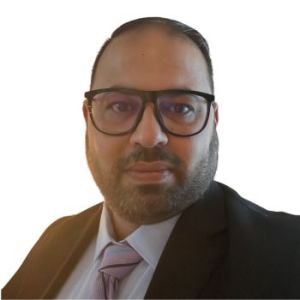
Amjad Alqaisi
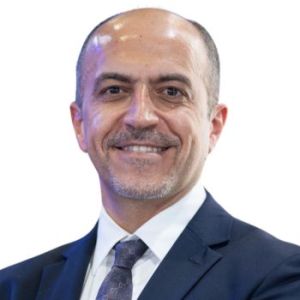
Ezzeldin Hussein
Ezzeldin is a technology leader with over 27 years of experience, specializing in Digital Transformation, Cloud Computing, and Cybersecurity. Currently serving as a Solutions Engineering Senior Director at SentinelOne, he has been a driving force in advocating for the adoption of cloud services in the META region. Ezzeldin’s deep industry knowledge and expertise have enabled him to guide numerous customers through successful digital transformation journeys. Ezzeldin holds a Bachelor’s in Computer Engineering, an MBA in Management, and executive leadership certifications from Cornell University, Notre Dame University, and INSEAD, highlighting his commitment to excellence in both academia and professional practice.

Gary Hallam
Gary has over 30 years’ experience in technology delivery, project management and sales and is passionate about delivering real business value through innovative technology. Gary has gained a unique view of the Application development life cycles of major corporations and how data can be both an accelerator and an inhibitor to innovation.

Hany George
Hani George is a Cybersecurity Expert at Mimecast, where his job is to bridge the gap between customers’ business requirements and the technical capabilities of Mimecast. His extensive technical prowess is one reason he hass prospered in his role, quickly addressing pain points and achieving ROI. His hands-on approach — from the meeting room to onboarding — also helps enable a seamless transition from prior systems to new ones, without compromising security and continuity. Before joining Mimecast, he worked as a computer engineer and, later, as a senior IT consultant specializing in Microsoft products like Exchange. Following that, he served as an IT manager at one of Dubai’s largest security companies, dnata.

Will Gray

Charbel Chekie

Dominic Thomas

Majid Bin Sawad
Cybersecurity Director
Saudi Authority for Industrial Cities & Technology Zones (MODON)
Read Bio

Majid Bin Sawad
Majid Bin Sawad serves as cybersecurity director at MODON. He is a seasoned industry executive with over 20 years of experience in IT and 15+ years in cybersecurity, leading strategic initiatives across sectors. He has a proven track record of applying AI-driven technologies to enhance security, optimize operations, and support digital transformation.

Alaa Khalid Falimban
Director, CyberSecurity Operations and Governance, Risk & Compliance
Saudi Arabian Mining Company (MA'ADEN)
Read Bio

Alaa Khalid Falimban

Nasser AlGhamdi
Nasser AlGhamdi serves as chief information security officer at the Saudi Commission for Health Specialties. He is an executive expert with over a decade of experience in cybersecurity and digitization. He excels at crafting proactive strategies that mitigate risk, drive sustainable growth, and align cybersecurity imperatives with overarching business objectives and the rollout of advanced cybersecurity measures. Nasser’s leadership has been marked by the successful orchestration of large-scale programs, the seamless integration of cutting-edge security architectures, and the championing of a security-first culture. Renowned for fostering organizational resilience, enhancing governance, and maintaining business continuity, he remains at the forefront of digital innovation — protecting critical assets and shaping a secure future for enterprises and industry.
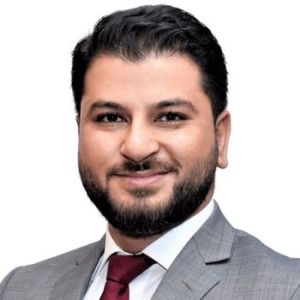
Uzair Mujtaba

Salem Alammari
Salem Alammari currently serves as cybersecurity director at ARDARA, a Public Investment Fund company, where he leads strategic cybersecurity initiatives aligned with national and enterprise priorities. He is a seasoned executive with over 23 years of experience in the field of cybersecurity. Salem specializes in establishing and operating cybersecurity departments and has successfully designed and implemented comprehensive security strategies across major organizations. His leadership experience includes key roles at entities such as SABIC and Aramco, with a strong focus on cybersecurity governance, regulatory compliance, and risk management. With a career dedicated to building secure, resilient digital environments, Salem is known for enabling business continuity and digital trust through effective cybersecurity leadership.
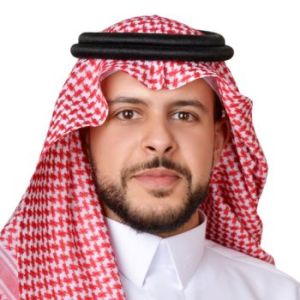
Abdulaziz Alruwieshed
Abdulaziz Alruwieshed is an experienced director of digital transformation and cybersecurity audits. He leads enterprise-wide initiatives focused on strengthening governance, enhancing operational resilience, and enabling secure innovation. With a background in business and computer science, he combines technical expertise with strategic leadership to address today’s complex risk landscape. Abdulaziz has been instrumental in integrating cybersecurity into internal audit functions, emphasizing proactive risk identification, continuous monitoring, and the adoption of emerging technologies such as AI and automation to support informed decision-making. His work bridges the gap between compliance and innovation — ensuring that transformation efforts are not only efficient but secure and sustainable. Recognized for his thought leadership and ability to drive change across complex environments, Abdulaziz continues to contribute to the advancement of cybersecurity and internal audit through strategic advisory, cross-functional collaboration, and professional engagement.

Abdulkarim Alsowaygh
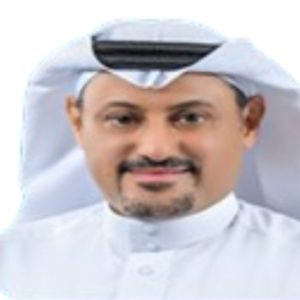
Bader Ali A. Alasoos
Knowledge Hub

Analyst Spotlight Cybersecurity Focus Areas in the META Region for 2025
Shilpi Handa,
Associate Research Director (META), IDC
As the Middle East, Türkiye, and Africa (META) region continues to evolve digitally, cybersecurity remains a critical concern for organizations. By 2025, several key focus areas are expected to dominate the cybersecurity landscape in the META region. A significant shift towards “best in platform” solutions over individual “best in breed” products is anticipated, driven by the need for comprehensive cybersecurity frameworks that can address the region’s pronounced skills gap and the increasing complexity of cyber threats. Integrated solutions offer streamlined and manageable security, which is crucial for organizations facing financial constraints and rapid digital transformation.
With the surge in identity-related breaches, Identity and Access Management (IAM) is set to be the paramount area for security investment. Following IAM, data security is another critical area of focus. The implementation of data privacy initiatives in countries like Saudi Arabia and Qatar has heightened the importance of protecting sensitive information. Organizations are expected to invest heavily in data security solutions to comply with regional regulations and safeguard their data. Developing a robust security awareness culture is crucial in combating phishing and malware attacks. The rise of generative AI technologies has made phishing attacks more sophisticated, necessitating enhanced security awareness programs. Organizations are likely to invest in training and awareness initiatives to mitigate these evolving threats. Additionally, securing Operational Technology (OT) infrastructure is vital for protecting critical services, especially in the energy sector.
The geopolitical dynamics of the META region increase the risk of sophisticated cyberattacks on vital services. Regulatory initiatives and the need to maintain public trust further underscore the importance of robust OT security measures. By focusing on these areas, organizations in the META region can strengthen their cybersecurity posture and enhance their resilience against emerging threats. The strategic emphasis on integrated solutions, IAM, data security, security awareness, and OT security reflects a comprehensive approach to addressing the complex cybersecurity challenges in the region.
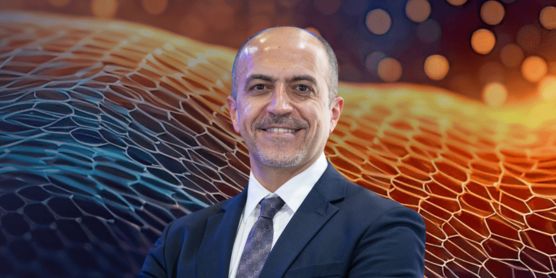
Partner Spotlight Resilience in the Age of Autonomous Threats
Ezzeldin Hussein,
Regional Senior Director, Solutions Engineering, Sentinelone
As digital transformation accelerates across the Middle East, organizations face an evolving threat landscape marked by AI-powered attacks, increasingly sophisticated ransomware, and identity-based breaches. Security teams are under immense pressure — not just to prevent intrusions, but to detect and respond in real time, across complex hybrid environments.
The next phase of cybersecurity maturity lies in resilience. This means more than perimeter defense — it’s about autonomous protection, contextual awareness, and the ability to act faster than attackers can move. Resilient organizations are those that can adapt, recover, and continue operating even in the face of advanced threats.
The IDC Security Roadshow 2025 comes at a critical time, offering a platform for security leaders in the region to explore how AI, machine learning, and automation are shaping the future of threat defense. It’s a chance to rethink security strategies — from reactive to predictive, from manual to autonomous.
Cybersecurity is no longer a support function. It’s a business enabler.
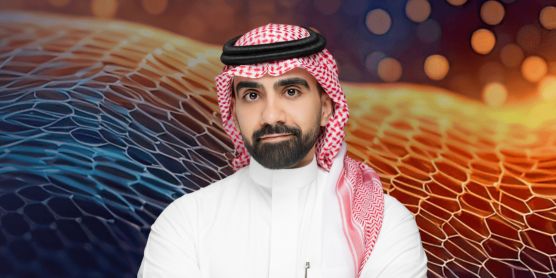
CXO Spotlight AI in Defense: Automated Threat Detection
Nasser AlGhamdi
GM of Cybersecurity, Saudi Commission for Health Specialties
AI is changing the way we stay safe on the internet. One thing many companies and individuals have been using historically is a list of known threats, but the hackers would not stay still. They would rename the code, switch servers, and find gaps in our security — and I’ve seen too many companies get left behind. But what they have missed is that this is AI’s real power; machine learning can identify undesirable behavior before serious damage is done. For instance, if an account suddenly logs in at midnight or downloads files it never uses, we can immediately stop it and address the problem before the hackers get the company’s data or overrun the system.
One of the main reasons I like AI is that it reduces false alarms. It knows that a deliberate spike in data could be normal for the marketing team around a product launch. The value of context is you avoid being inundated by meaningless alerts and allow yourself to focus on the real threats that warrant your attention.
Hackers, too, use AI to circumvent obsolescent defenses. They experiment with new techniques, hone their tactics, and mount attacks against those who don’t catch up. And so on, and on, and on it goes, this cat-and-mouse game — and it’s not going to stop anytime soon. The solution is to make sure we train our AI on current data. We use the data that we made available to it about known tactics and habitual behavior to optimize its ability to spot anomalies that might be the start of a new threat.
Despite its promise, AI is not a panacea. It relies on human involvement to set it up, review alerts, and make final decisions. It can occasionally make mistakes, and we must be prepared to step in to prevent breaches. However, if we rely solely on manual checks, we risk falling behind. Security teams must collaborate with AI, allowing it to handle most tasks while experts address the more complex issues.
I am also concerned about privacy. AI can observe everything from user logins to emails. We must establish clear boundaries: collecting only what is necessary, ensuring security, and informing individuals about why we monitor their data. Transparency is crucial for gaining the trust of employees and customers. AI can be a force for good, but it must be handled with care.
Looking to the future, I envision AI playing an even more significant role in preventing attacks before they occur. It will analyze patterns across various companies, detect threats early, and disseminate warnings so others can stay prepared. However, attackers can exploit this same technology, crafting convincing phishing emails or customizing malware for specific targets. This reality keeps me vigilant, reminding me that our defenses must evolve as rapidly as the offenses we face.
Ultimately, AI is a partner rather than a replacement for human insight. It should handle the heavy lifting, allowing us to concentrate on planning and creativity. We can defend ourselves robustly and personally by combining relentless AI with real-world expertise. It is akin to having a loyal watchdog by our side, always ready to raise the alarm. This sense of security keeps us calm, even in turbulent times, and reassures us that as digital threats evolve, so too do our defenses, one line of code at a time.

Analyst Spotlight Enabling AI Outcomes with Cybersecurity
Frank Dickson,
Group Vice President, Security & Trust, IDC
GenAI was coming. Predictive AI was coming. No . . . wait, it was already here. Anyway, we sit here today focused on the art and the genuineness of the possible.
As we consider and dream of the possible, we sometimes forget the reality of the now. Between the hype around GenAI and the COVID-19 pandemic before that, we sometimes fail to acknowledge that cybersecurity has grown up. Once the dominion of hoodie-wearing basement dwellers, the topic has elevated to the C-suite and beyond. Attacks from the cyberthreat landscape do not just present a technical risk — the ramifications create a risk to the organization itself. In essence, cyber risk equals business risk.
Unlike many other corporate functions, cybersecurity did not develop from the typical path of strategy, goals, policies then tactics. It started in reverse with tactics first, then policies, then goals, and finally to strategy — if it made it there at all. The result is that formal strategy is really more of an amalgamation of small tactical decisions over time. This opportunistic cybersecurity strategy creation makes it challenging for organizations that are looking to create competitive advantages with AI. Thus, security needs to evolve from the tactical to the strategic, from being reactive to being proactive, from being an inhibitor to an enabler.
Cybersecurity leaders must now think strategically and act as business leaders alongside the executives of their organizations — creating insights, aiding executives in decision-making, and showing an organization’s risk posture are all critical for cybersecurity leaders’ success in today’s fast-changing threat landscape and regulatory environment.
The IDC Security Roadshow & CISO Excellence Awards looks to address security in this new reality of security becoming an enabling function for AI-created competitive advantage. We aim to guide you in working with the CEO and board of directors as we transition to delivering secure outcomes and a trusted organization to our executive constituencies.
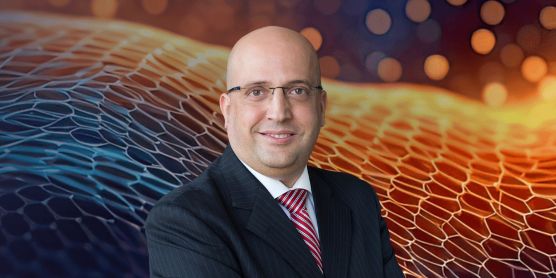
CXO Spotlight AI in Conglomerates: Unifying Innovation Across Multiple Verticals
Mario Foster,
Group Chief Information Officer, Al Ghurair Group
Conglomerates, especially family-owned businesses, manage a complex array of industries, including real estate, manufacturing, construction, automotive, food, retail, logistics, and FMCG, to name just a few. Each industry comes with its own set of challenges, expectations, and leadership goals. At Al Ghurair Group, we have found that AI not only serves as a critical enabler of innovation but also acts as a unifying force to address the diverse needs across these verticals.
One of the biggest challenges is the differing demands and expectations from leaders within each sector. For example, in manufacturing and automotive, leaders may focus on precision, efficiency, and reducing downtime, while in retail, the emphasis may be on enhancing customer experience and personalization. In the food industry, sustainability and food safety are often paramount, while construction leaders may prioritize project management and cost optimization. Each vertical looks to technology for unique benefits, and AI allows us to tailor solutions to meet these varied demands.
At the holding or corporate head office (HO) level, the challenge is to ensure alignment between the diverse business verticals while maintaining group-wide governance, compliance, and reporting standards. AI supports these requirements by centralizing data management, improving visibility across subsidiaries, and enabling accurate and timely reporting. This not only strengthens decision-making at the group level but also ensures that strategic initiatives are cohesively implemented throughout the conglomerate.
AI enables us to harness data from multiple sectors and multiple resources, providing valuable insights that enhance decision-making at the executive level. Predictive analytics allows us to anticipate market trends, optimize supply chains, and streamline operations, while addressing the specific challenges of each industry. This ensures a cohesive strategy that benefits the entire group while also aligning with the goals of individual business leaders.
AI’s role in automating routine daily tasks and driving efficiencies is equally crucial. Whether we’re managing construction projects, enhancing customer experiences in retail, or optimizing production lines in our manufacturing and automotive operations, AI solutions ensure that processes are standardized and optimized across the board. The ability to implement adaptable AI solutions tailored to each business vertical — while maintaining centralized oversight — enables the group to deliver value across sectors rapidly.
Additionally, AI helps overcome the challenge of differing time horizons and business cycles within any conglomerate. Leaders in industries like real estate and construction may take a long-term view, focusing on sustainability and gradual growth, while in sectors like food and retail, shorter business cycles demand agility and quick decision-making. AI helps conglomerates bridge this gap by providing real-time insights and forecasting capabilities, allowing each vertical to operate optimally within its own cycle.
As we continue navigating an increasingly digital world, AI remains integral to maintaining the agility and competitive edge needed to thrive as a diverse conglomerate. It enables us to unify innovation while ensuring that each business vertical benefits from the latest advancements in technology, contributing to the success of the entire group.
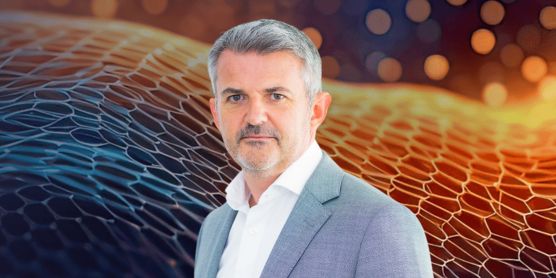
CXO Spotlight Transformative Power: How AI is Reshaping Industries and Redefining Problem Solving
Damian O’Gara,
CIO, Kent
Throughout my career I have seen some emerging technologies not entirely deliver on their expected promise, or their progress is hindered by regulatory and other constraints. Other technologies, mooted to transform our world, eventually find their niche, as in the case of blockchain and fintech, and others truly do become ubiquitous and land in the plateau of productivity — cloud computing being one.
Artificial Intelligence is revolutionizing various aspects of our world through its remarkable capabilities in predictive analytics, text summarization and generation, sensing our environment, and some impressive robotics.
The power of AI in leveraging data for predictive analytics cannot be overstated. Businesses are increasingly harnessing this capability to forecast trends, optimize operations, and make informed decisions. In the energy industry AI-enabled predictive maintenance is fast maturing increasing asset reliability and saving costs.
With respect to text generation and summarization, AI has made significant strides. Generative AI is already making inroads to transform corporate back offices and enhance productivity. From creating reports to summarizing complex documents, AI’s linguistic capabilities are revolutionizing how businesses handle information, making processes more efficient and accessible.
AI’s capacity to sense the environment is particularly evident in computer vision applications. For example, this technology is transforming drone operations, enabling the inspections of energy assets with accuracy. AI-powered drones can autonomously navigate complex environments, detect obstacles, and make real-time decisions, showcasing AI’s ability to interpret and respond to visual data.
AI is not just a passing trend but a fundamental shift in how we approach technology and problem solving. Its diverse applications in predictive analytics, text summarization, environmental sensing, and robotics are reshaping industries and creating new possibilities. As AI continues to evolve, its impact on our daily lives and various sectors of society will only grow, solidifying its position as a transformative force that is here to stay.
Venue

Not the right event for you?
Don’t worry! There are plenty of other events to choose from. Simply sign up for event invitations and we’ll send you a notification whenever we add a new event that matches your interests.

Stay tuned for exciting news about this event
Lorem ipsum dolor sit amet consectetur. Dui egestas in senectus suspendisse enim. Lorem ipsum dolor sit amet consectetur.
Register Now

